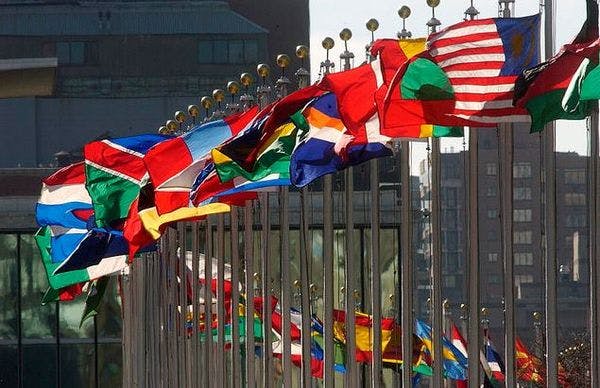Declaración sobre las primeras etapas de la UNGASS 2016
Es evidente que las políticas de drogas siguen siendo muy polémicas y que lograr el consenso en la UNGASS será una tarea difícil. Más información, en inglés, está disponible abajo.
Suscríbase a las Alertas mensuales del IDPC para recibir información sobre cuestiones relacionadas con políticas sobre drogas.
Preparations are well under way for next April’s UN General Assembly Special Session on the World Drug Problem, the outcome of which will be a “short, substantive, concise and action-oriented outcome document comprising a set of operational recommendations”.
The discussion is currently focused on what the outcome document should say. Various nations, regional bodies and members of civil society have submitted their proposals for what they would like to see in the “zero draft”.
Here, you can read excerpts from some of the submissions for the outcomes document. It is clear that drug policy is still highly controversial, and achieving consensus at UNGASS will be a difficult task.
Civil Society Taskforce
Responses based on a survey filled in by civil society organisations between April and July 2015. The preliminary report summarises data (where available) only from the English, Chinese, Vietnamese, Portuguese, Italian, Persian, Turkish and some Spanish surveys, as translations from Arabic, French, Russian and some Spanish were not yet available.
Harm reduction services should be widely available and freely accessible to all people who use drugs.
It is crucial that substance dependence treatment is grounded in evidence and is culturally appropriate. Such treatment should be accessible, affordable or free for those who seek it. Governments and UN agencies should continue efforts to ensure that the right of all people to health care is recognised and that all efforts are directed at ensuring that discrimination against people who use drugs does not prevent the fulfilment of this fundamental human right.
Members of civil society have expressed concern for the disparities in arrest and sentencing for drug charges, as well as the proportionality of punishment for drug offences.
Civil society organisations around the world feel that the death penalty is an extreme punishment that is disproportionate to the harms of drug possession or drug trafficking and is a violation of the right to life.
Informal coalition of Mexican NGOs
Reaffirm that drug use should be treated as a public health issue, not one related to criminal justice. Drug use should be treated as an issue of access to information, harm reduction and public health, meaning using drugs should not make people subject to punishments such as criminal sanctions, Police extortion, arbitrary arrests, harassment and imprisonment or other forms of repression.
Ensure that policies and health programmes on drugs are not limited to prevention and treatment and ensure public policies prioritise harm reduction perspective in all health programmes. Recognise harm reduction strategies as a set of evidence-based and respectful of human rights interventions and rely on the examples of good practices set by other countries such as Portugal.
China
The preamble of the outcome document should firmly oppose legalisation of drugs in any form.
Calls upon member states to promote the prevention of drug use through educational programmes targeted and involving children and youth.
Click here to read the full article.
Keep up-to-date with drug policy developments by subscribing to the IDPC Monthly Alert.
Thumbnail: Flickr CC UN Photo
